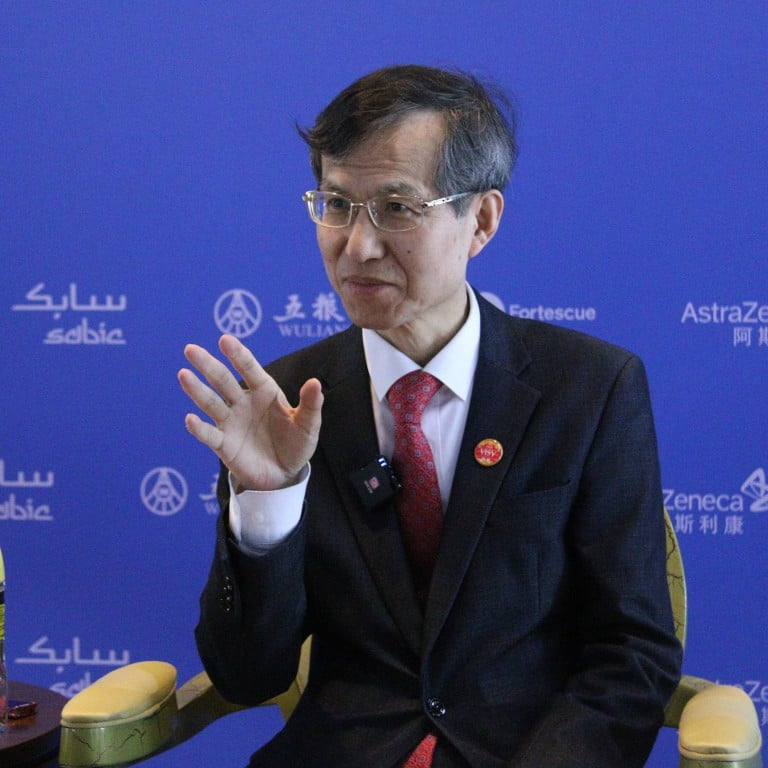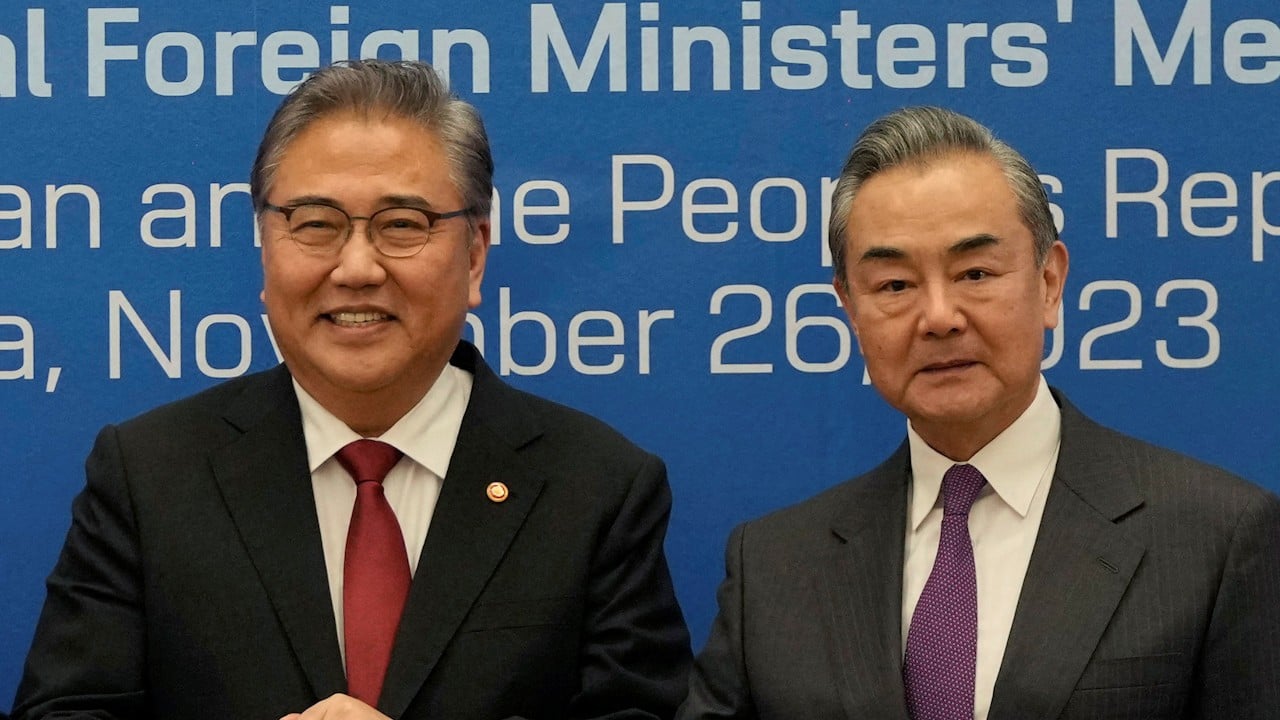
Long-delayed China-Japan-South Korea leaders’ summit needed ‘as soon as possible’ as countries face ‘polycrisis’
- Head of trilateral organisation representing the countries tells Boao Forum that no nation can face current geopolitical challenges by themselves
- Key to peace in East Asia depends on cooperation between the regional neighbours, expert says
Cooperation between China, Japan and South Korea is more important than ever as the neighbours face a series of intertwined crises, according to the head of a trilateral organisation for the three countries.
“Any country cannot handle [these crises] by themselves … so the three countries and TCS need to facilitate trilateral cooperation as soon as possible,” he said.
China-US rift looms over Japan, South Korea as Beijing wants to restart trade
Collaboration and solidarity should be boosted to confront global crises, and the resumption of a leaders’ summit this year – the first in four-and-a-half years – would carry special significance, Lee said at the forum, which runs until Friday.
“So we need to cooperate closely,” he said.
Lee did not provide an update on progress to revive the leaders’ summit, saying the three-way meeting would happen at a mutually convenient time, echoing a similar statement by the foreign ministers of the three countries in November. Lee said he hoped it would be held “in the near future”, adding that the three governments “have been preparing for it”.
US allies resist Biden’s urge to tighten chip curbs on China
Seoul, the current chair of the rotating dialogue, initially anticipated the summit would be held by the end of 2023 or early 2024. But Japanese media earlier reported that the forum could be delayed until May or even later, as Beijing weighs its options over the coming months.
The first trilateral summit was held in 2008, but was suspended during the Covid-19 pandemic as ties between the neighbouring countries began to fray.
Lee also stressed the importance of young people and grass-roots exchanges in promoting future relations between the countries.
He said online media and social network sites could amplify negative sentiment, misunderstandings and misperceptions among youth about other countries.
“Young people will be the solid foundation for trilateral cooperation,” he said. “Trilateral cooperation is the regional, future-oriented cooperation, not present.”
TCS, which was established by China, Japan and South Korea in 2011, is tasked with promoting lasting peace, common prosperity and shared culture between the three countries, especially by encouraging people-to-people exchanges.
Can India forge a 3-way Indo-Pacific partnership with Japan and South Korea?
Lee admitted that the tensions between the two superpowers were a critical obstacle to trilateral cooperation, but said the livelihoods of average people in China, Japan and South Korea should get more attention since their economies are closely integrated.
North Korea’s frequent missile launches threatened regional stability, and trilateral cooperation was urgently needed to jointly tackle the issue, Lee said.
“High tension is never helpful for the three countries,” he said.
Xu Bu, an expert on global development and security studies at Jiangsu University, said on Wednesday that given the problems facing the three countries, “something constructive and concrete” should be negotiated during the three-way summit.
“It is so important for these countries to deal with their own problems in a proper way and the cooperation among three countries is the key to peace, security and prosperity in East Asia,” Xu said at the forum.


